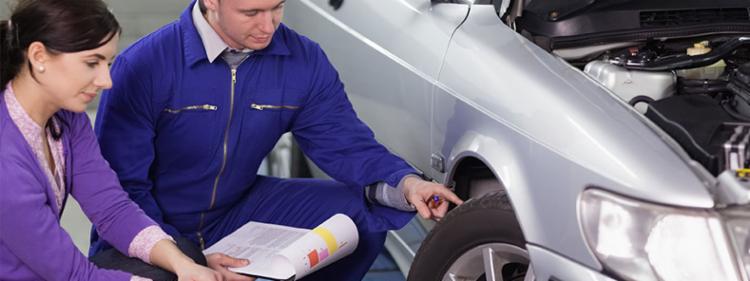Why You Shouldn't Ignore the Pre-Purchase Car Inspection

The first piece of advice anyone gives to a used car buyer is to have the vehicle thoroughly inspected by a licensed, third-party mechanic. Why, then, is this tip so often ignored? It may be because too many consumers don't know how important it is; they don't know how to go about getting an inspection done, or they simply don't realize how affordable it is to have done. Here's the 411 on pre-purchased used car inspections to put those reasons to rest.
But first, make sure you're covered with an affordable car insurance policy.
Where to Have the Car Checks Done
If you're shopping for a used car locally, the one of the best places to take it for an inspection is to a mechanic with whom you have already built a relationship. Some of us are fortunate enough to have already found our go-to car doctor, the only one who knows how to care for our baby's health. This rapport is invaluable when it comes to a pre-purchase car inspection. The mechanic will give it to you straight and won't sugarcoat any of the car's shortcomings.
If you do not have such a trusted mechanic to depend on for service or if you are shopping outside of your area, you can always order a pre purchase inspection from a third-party mechanic in the seller's area.
In today's digital world, it's also not uncommon to order your vehicle online. In this case, several Internet companies will send an inspector to the site and send you the report. Some of these reports even include the car's accident and maintenance history.
What Checks the Inspection Should Include
You can usually pick up a copy of a pre-purchase car inspection checklist from your local DMV. Otherwise, several trusted auto websites such as Edmunds and Popular Mechanics have these checklists available to download and print. The 101-item list provided by the engineering geniuses at Popular Mechanics has been broken down here to show the most important things to inspect. A thorough pre-purchase used car inspection should examine the functionality of the following parts:
- Tires
- Frame and axle
- Suspension
- Windshield and other glass
- Lights
- Brakes
- Radiator
- Hoses
- Wiring
- Belts
- Fluids
- Battery and alternator
- Body condition
If you are mechanically inclined, you could conduct some of the extensive examinations recommended by Popular Mechanics yourself, but you should let an expert complete some more involved parts of the inspection. The very best examinations should also include a road test conducted by an experienced mechanic, as well as computerized diagnostics to check the car's digital equipment.
What to Expect To Pay for Your Inspection
According to the auto experts at Edmunds, most mechanics will charge around $100 for pre-purchase inspection services. The cheapest inspections available online go for around $80, but be sure they offer a complete examination. Remember, you often get what you paid for, and an extra $20 can mean the difference between being stuck with a lemon and avoiding the purchase in the first place.
Mechanic Nate Benoit said he sometimes offers his most loyal customers a free pre-purchase examination.
"I figure I'll be the one to make any needed repairs anyhow," Benoit said. "I appreciate their business and try to help them out if I can."
See the benefits of having a trusted mechanic at your service?
What If the Seller Refuses a Pre-Purchase Inspection?
Some used car sellers may offer you a "checklist" that has already been filled out by their own mechanic. Unfortunately, their car-doctor may be just as loyal to them as Benoit is to his VIP customers, but lack the integrity to stay honest. It's always a good idea to have the car inspected by your own mechanic or, at the very least, by a third party.
If the seller refuses to allow you to take the car to your shop or denies the mobile inspector access to the car, you should ask yourself, "What are they hiding?" Move on to a seller who isn't afraid of having the car examined.
The Report Is In: What Now?
A spotless inspection should make both you and the seller feel comfortable with the deal. You know the car is sound, and they know they aren't going to be in trouble for giving you a raw deal. If that's the case and you love the car, you can feel confident in the purchase.
An inspection that yields a few minor problems is usable as a bargaining tool in negotiations with the seller on the price. The seller may be more willing to come down on the asking price when you have evidence of near-future repairs. Always check the Kelley Blue Book for the true value of the car you are considering buying. Their listed price is a good place to start negotiations.
Should your mechanic come back to you with a report full of red flags and unavoidable repairs, you can ask the seller to pay for the repair services and come down considerably in the price or you can avoid the purchase all together.
Once you find that car that's worth the price and the inspection is clear, don't forget about car insurance. You'll need coverage for liability if you hit someone or cause property damage while driving, and if you take out a loan, your lender might require that you carry collision and/or comprehensive insurance. While car maintenance can be expensive, accidents are even more so. Before you get caught holding the bag after an accident, contact an independent agent who can help you save on your coverage.
